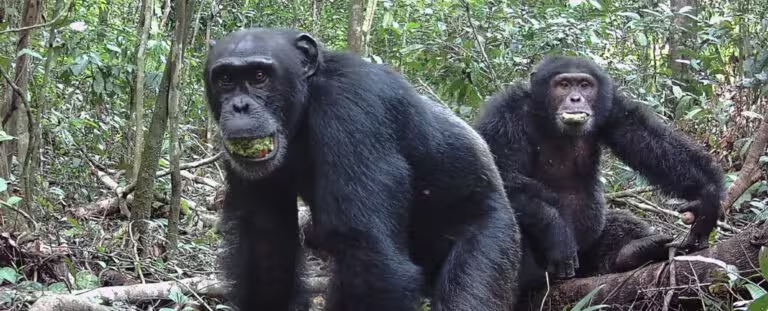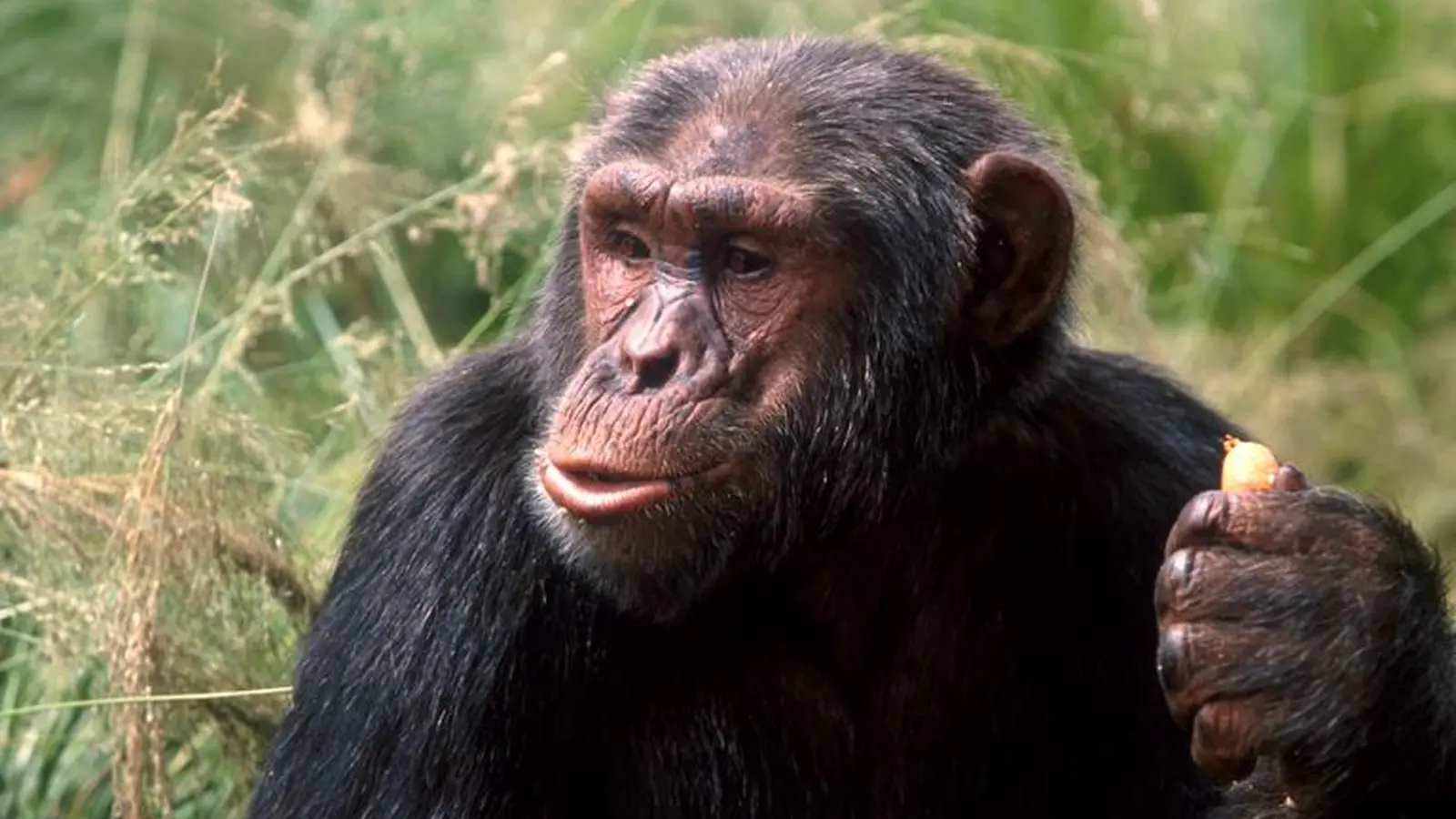5 Minutes
Chimpanzees and Everyday Alcohol Intake
A field study published in Science Advances reports that wild chimpanzees routinely ingest measurable amounts of ethanol by eating ripe, fermenting fruit. Researchers working in African chimp habitats collected fruits preferred by the animals, measured ethanol produced by natural fermentation of sugars, and estimated daily ethanol intake. On average, an individual chimp consumes roughly 14 grams (about half an ounce) of alcohol per day. When adjusted for body size, that intake approximates the ethanol contained in a pint of beer for a human — a diluted but consistent exposure linked to the animals’ frugivorous diet.
This finding reinforces a long-standing evolutionary idea: exposure to low levels of naturally occurring ethanol may have shaped primate sensory preferences and metabolic pathways, offering a potential explanation for why humans are susceptible to alcohol’s appeal and able to process it enzymatically despite its toxicity at higher doses.
Study methods, measurements and scientific context
Sampling and ethanol quantification
The research team collected specimens of fruits that chimpanzees were observed eating, including overripe and partially fermented items. Ethanol forms when yeasts metabolize sugars in fruits; the investigators quantified ethanol concentrations using standard chemical assays and extrapolated intake by combining concentration data with observations and estimates of fruit consumption rates.
Comparative and evolutionary background
The work directly addresses the “drunken monkey” hypothesis, first proposed by biologist Robert Dudley, which posits that attraction to fermented fruit and the ability to metabolize ethanol were traits favored in primate evolution. Prior behavioral studies showed that some primates prefer nectar or sap with higher ethanol content, and genomic analyses have identified variants in alcohol-metabolizing enzymes in primates and humans. This new field-based ethanol inventory strengthens the ecological foundation for that hypothesis by demonstrating routine, physiologically relevant exposure in a close human relative.

Key findings, implications and open questions
The central result is that chimpanzees in natural settings are exposed daily to low, persistent doses of ethanol through their diet. Lead author Aleksey Maro and collaborators conclude these doses are "physiologically relevant" — sufficient to warrant study of chronic, low-level ethanol effects on behavior, health and evolution. Specialists not involved in the study praised the data coverage and its contribution to resolving debates on how common ethanol is in tropical fruits.
However, the study leaves important questions open. Researchers do not yet know whether chimps seek out more-fermented fruit or simply consume what is available. Long-term physiological consequences of chronic low-dose ethanol exposure remain uncharacterized for nonhuman primates: effects on liver function, gut microbiome, social behavior and reproductive success are all plausible areas for future research. Understanding selective behavior versus opportunistic feeding will require controlled choice experiments or detailed foraging observations linked to ethanol assays.
Expert Insight
Dr. Elena Park, evolutionary ecologist (fictional), comments: "This study builds an essential bridge between laboratory and field perspectives. Quantifying ethanol in the actual foods consumed by wild primates is a critical step toward understanding how dietary exposures shape sensory systems and metabolic adaptations over evolutionary time. Next steps should integrate behavioral choice data with longitudinal health metrics to assess both costs and potential adaptive benefits of low-level ethanol exposure."
The research also has broader relevance for disciplines such as nutritional ecology, evolutionary genomics and conservation biology. Insights into natural dietary ethanol exposure may inform interpretations of genetic variation in alcohol dehydrogenase and related enzymes across primate lineages. For conservation and animal welfare, recognizing fermented fruit as a routine part of chimp diets can refine habitat and feeding assessments.
Conclusion
Field measurements indicate that wild chimpanzees regularly consume small but meaningful amounts of ethanol via fermenting fruit — roughly equivalent to a pint of beer after body-size correction. These results lend ecological support to the drunken monkey hypothesis and prompt new research directions on behavioral choices, physiological impacts, and evolutionary consequences of chronic low-level ethanol exposure in primates. By linking natural diet chemistry with primate behavior and metabolism, the study offers a clearer picture of how alcohol exposure in the wild could have contributed to evolutionary trajectories relevant to humans.
Source: sciencealert


Leave a Comment